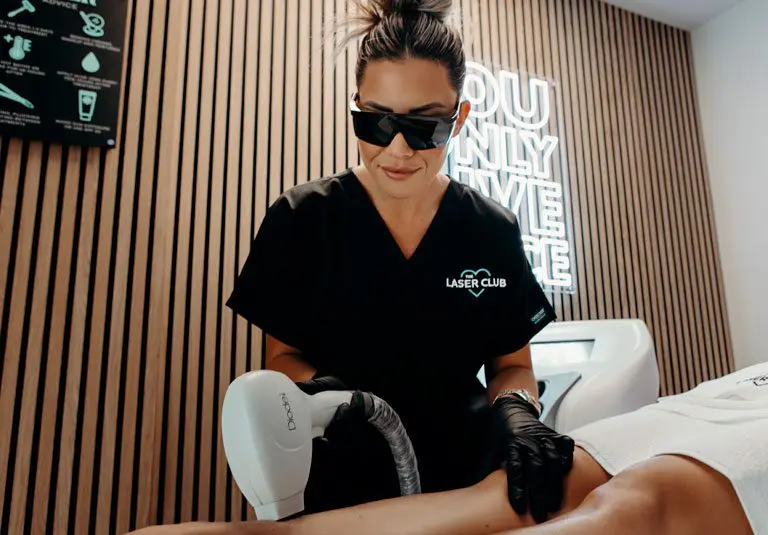
Hormones play a significant role in regulating hair growth, and their influence can lead to various challenges related to hair removal. Whether you’re dealing with excess hair growth or hair thinning, understanding how hormones affect your body can help guide you towards the most effective treatments.
At the Laser Hair Removal Clinic, we are committed to providing the latest information and solutions for hair removal. In this article, we’ll explore how hormones impact hair growth and the treatments available to help manage it.
How Hormones Affect Hair Growth
Hormones, particularly those related to reproduction and stress, significantly affect hair growth. Understanding the various types of hormones and their role in hair follicles is key to managing hair growth challenges.
Androgens and Hair Growth
Androgens, such as testosterone, are male hormones that both men and women produce. These hormones stimulate hair follicles, leading to hair growth in certain areas, such as the face, chest, and back. Elevated androgen levels can cause unwanted hair growth, known as hirsutism.
Estrogen and Hair Growth
Estrogen, the primary female sex hormone, has the opposite effect of androgens. Higher estrogen levels typically promote thicker, healthier hair. However, fluctuations in estrogen—such as during pregnancy or menopause—can lead to hair thinning or shedding.
Thyroid Hormones and Hair Growth
Thyroid hormones also influence hair health. Hypothyroidism (an underactive thyroid) can cause hair thinning and loss, while hyperthyroidism (overactive thyroid) may lead to hair shedding.
Cortisol and Hair Growth
Cortisol, the hormone released during stress, can impact hair growth as well. Chronic stress can lead to a condition known as telogen effluvium, where hair falls out in large amounts, often during times of physical or emotional stress.
Common Hormonal Imbalances and Their Effects on Hair Growth
Certain hormonal imbalances can lead to more pronounced effects on hair growth, causing conditions that may require professional intervention.
Polycystic Ovary Syndrome (PCOS) and Hair Growth
PCOS is a common condition that results in an imbalance of reproductive hormones, leading to an excess of androgens. This excess can cause excessive facial and body hair growth, often requiring treatment such as laser hair removal.
Menopause and Hair Thinning
As women approach menopause, the drop in estrogen can lead to noticeable hair thinning. This period of hormonal change can also cause scalp hair to become finer and less dense.
Pregnancy and Hair Changes
During pregnancy, increased estrogen levels often cause a temporary period of thicker hair growth. However, after childbirth, the sudden drop in estrogen can lead to postpartum hair shedding.
Hormonal Treatments for Hair Growth and Removal
While hormonal imbalances can lead to unwanted hair growth or hair loss, there are various treatments available to manage these conditions.
Hormonal Therapy for Hair Growth Management
Hormonal treatments can be prescribed to balance hormone levels and manage hair growth. Birth control pills, anti-androgens, and other medications can help regulate androgen levels and prevent unwanted hair growth.
Laser Hair Removal: A Permanent Solution
Laser hair removal is one of the most effective ways to manage excess hair caused by hormonal imbalances. It targets the hair follicles with concentrated light, effectively reducing hair growth over time.
At the Laser Hair Removal Clinic, we provide advanced laser treatments tailored to individuals with hormonal hair growth concerns.
Electrolysis: Another Permanent Option
Electrolysis involves using electrical currents to destroy hair follicles. This method can be particularly effective for treating smaller areas or isolated hairs that may not respond well to laser treatment.
The Role of Genetics in Hormonal Hair Growth and Removal
While hormones play a significant role in hair growth, genetics also influence how your body responds to these hormones. Understanding the genetic factors that contribute to hair growth patterns can help tailor treatment plans and provide more effective results.
Genetic Predisposition to Excess Hair Growth
Some individuals are genetically predisposed to increased hair growth in certain areas of the body. This can be influenced by family history, where genetic factors play a key role in how the body produces and reacts to androgens. If you have a family history of excess facial or body hair, you may be more likely to experience similar issues.
Genetic Factors in Hair Loss
On the other hand, genetic factors can also contribute to hair thinning and loss. Male-pattern baldness and female-pattern hair thinning are both hereditary conditions influenced by a combination of hormones and genes. Understanding these factors can help in identifying early signs of hair loss and seeking appropriate treatments.
How Genetics Influence the Effectiveness of Hair Removal Treatments
Genetics can impact how effective hair removal treatments are. People with darker, coarser hair typically see better results with treatments like laser hair removal, as the contrast between hair and skin allows the laser to target the hair follicles more efficiently. Individuals with lighter or finer hair may require more sessions for optimal results.
How to Choose the Right Hair Removal Treatment for Hormonal Imbalances in Dublin
When choosing a hair removal treatment in Dublin, it’s important to consider your unique hormonal needs and the best options for your hair type and skin tone.
Consultation and Assessment
A thorough consultation with a hair removal expert can help determine the best course of action. During this session, we’ll assess your hormone levels, hair growth patterns, and the treatment options that will work best for you.
Choosing Between Laser Hair Removal and Electrolysis
Both laser hair removal and electrolysis can be effective, but the right treatment depends on your specific situation. Laser hair removal tends to be faster and more suitable for larger areas, while electrolysis is ideal for small or sensitive areas.
Tips for Maintaining Healthy Hair and Skin During Hormonal Changes
While treatments can address hair growth, maintaining overall skin and hair health is just as important.
- Maintain a Healthy Diet: Ensure you’re getting the right nutrients, such as vitamins and minerals, to support hair growth.
- Avoid Harsh Chemicals: Use gentle hair products that won’t exacerbate hormonal changes.
- Stay Hydrated: Proper hydration helps maintain skin and hair health.
- Manage Stress: Since cortisol can impact hair health, find ways to reduce stress through relaxation techniques or exercise.
Conclusion: Managing Hormonal Impact on Hair Growth in Dubli
Hormones have a significant impact on hair growth, and their influence can vary depending on individual conditions. Whether you’re experiencing excessive hair growth or hair loss due to hormonal imbalances, there are various treatments, such as laser hair removal, that can provide long-term solutions.
At the Laser Hair Removal Clinic, we are dedicated to offering professional treatments that are safe, effective, and tailored to your needs. Book a consultation today to find out how we can help you manage the effects of hormones on your hair growth.
Back to blog






